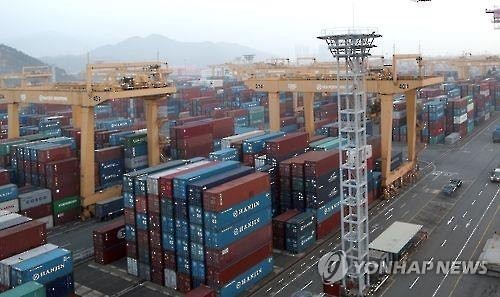Korea’s overall production and consumption fell last month on the back of slow manufacturing and retail sales, despite a slight pickup in the services industry led by the finance and insurance sectors, according to Statistics Korea on Tuesday.
The index of all industry production, which tracks industrial production, services, public administration and construction, stood at 110.9 in April, down 0.8 percent from the month before.
“Low production and an increase in finance reflect a change in activity from both companies and consumers, which could indicate that they are saving more than spending for the future,” said an industry source.

The decrease in the industry index after two months of increases was mostly due to a fall in industrial production, measuring production in the manufacturing, utility and mining sectors.
The country’s industrial production fell 1.3 percent last month, followed by a 1.3 percent drop in March, with data showing slow production across all sectors.
An increase in the production of semiconductors and metals was not enough to offset a drop in production from the automobile and logistics sectors, the statistics bureau said in a statement, noting that the manufacturing index had fallen over the last two months.
The slow production was clearly validated by statistical data showing a decrease in manufacturing operations to 71 percent in April, from 73.7 percent in March.
This indicates that companies were winding down their inventories to cut costs rather than developing and rolling out products amid weak demand. Manufacturers’ inventories fell 2.3 percent in April from the month prior, with the inventory-to-shipment ratio decreasing 0.9 percentage points over the same period.
Consumption fell 0.5 percent in April on weak retail sales of automobiles, clothes and fashion accessories, and consumer tech products such as computers and telecommunications devices.
Facility investment increased 3.4 percent in April, but this was lower than the increase of 5.8 percent in March, indicating an investment slowdown in equipment and robotics as the number of public and private projects in manufacturing and construction decreases.
The Finance Ministry said that it expects exports and domestic sales of automobiles to pick up this month backed by a fiscal policy promoting the extension of special excise tax cuts.
However, external negative factors persist that could further weigh down consumer and business sentiments, which remain below 100. A reading above 100 means optimists outnumber pessimists.
“We will continue to monitor the market (that is) facing external and internal uncertainties, and strengthen risk management of household and corporate debts while pursuing a policy that could spur investment and exports in the second half of this year,” the ministry said in a statement.
By Park Hyong-ki (
hkp@heraldcorp.com)




![[Herald Interview] 'Trump will use tariffs as first line of defense for American manufacturing'](http://res.heraldm.com/phpwas/restmb_idxmake.php?idx=644&simg=/content/image/2024/11/26/20241126050017_0.jpg)

![[Health and care] Getting cancer young: Why cancer isn’t just an older person’s battle](http://res.heraldm.com/phpwas/restmb_idxmake.php?idx=644&simg=/content/image/2024/11/26/20241126050043_0.jpg)

![[Graphic News] International marriages on rise in Korea](http://res.heraldm.com/phpwas/restmb_idxmake.php?idx=644&simg=/content/image/2024/11/25/20241125050091_0.gif)